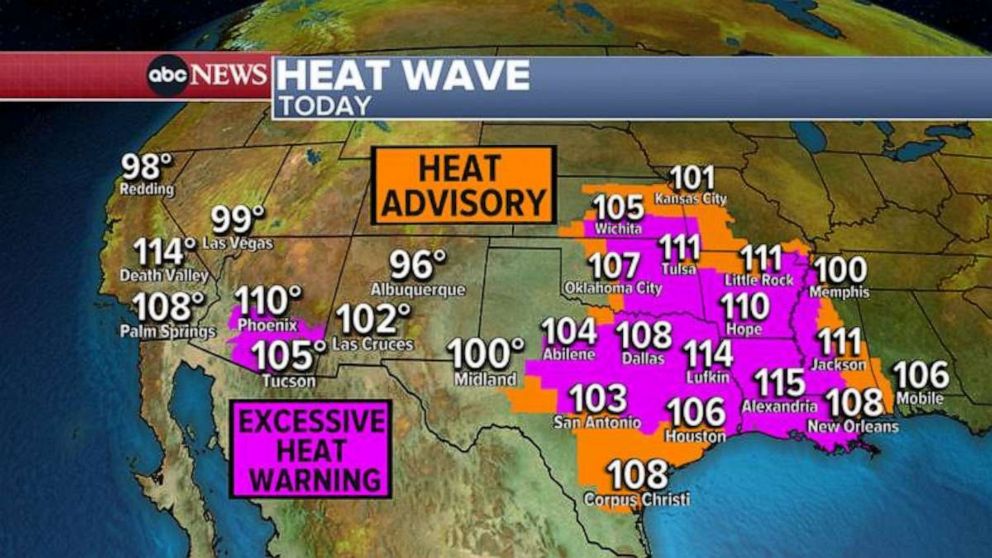Heat alerts have been issued for a staggering 65 million Americans residing in the Southern region of the United States. As temperatures continue to soar, it is crucial for individuals to take necessary precautions to protect themselves from the potentially dangerous effects of extreme heat.
The National Weather Service has issued heat advisories, excessive heat warnings, and heat watches for several states in the Southern region, including Texas, Louisiana, Mississippi, Alabama, Georgia, Florida, and South Carolina. These alerts serve as a reminder that heat-related illnesses can be life-threatening and should not be taken lightly.
Extreme heat can have severe consequences on the human body. Prolonged exposure to high temperatures can lead to heat exhaustion or even heatstroke, which can be fatal if not treated promptly. Symptoms of heat exhaustion include heavy sweating, weakness, dizziness, nausea, headache, and muscle cramps. Heatstroke, on the other hand, is characterized by a high body temperature (above 103°F), hot and dry skin, rapid heartbeat, confusion, and unconsciousness.
To stay safe during these scorching conditions, it is essential to follow some key guidelines. Firstly, it is crucial to stay hydrated by drinking plenty of water throughout the day. Avoid alcoholic beverages and caffeinated drinks as they can contribute to dehydration. Additionally, wearing lightweight and loose-fitting clothing can help your body regulate its temperature more effectively.
It is also advisable to limit outdoor activities during the hottest parts of the day, typically between 10 am and 4 pm. If you must be outside, seek shade whenever possible and take frequent breaks in air-conditioned or cool areas. Applying sunscreen with a high SPF is vital to protect your skin from harmful UV rays.
Furthermore, it is important to check on vulnerable individuals such as the elderly, young children, and those with chronic illnesses. They are more susceptible to heat-related illnesses and may require additional assistance in staying cool and hydrated.
In homes without air conditioning, it is crucial to find alternative ways to stay cool. Using fans, taking cool showers or baths, and keeping windows and curtains closed during the hottest parts of the day can help maintain a cooler indoor environment. It is also advisable to visit public places with air conditioning, such as shopping malls or libraries, to escape the heat for a while.
Lastly, it is essential to be aware of the signs of heat-related illnesses and seek medical attention if necessary. If you or someone around you exhibits symptoms of heat exhaustion or heatstroke, it is crucial to move to a cooler place, drink water, and apply cool compresses to the body. If the symptoms worsen or do not improve within an hour, it is important to call emergency services immediately.
In conclusion, as heat alerts are issued for 65 million Americans in the Southern region, it is vital for individuals to take necessary precautions to protect themselves from the potentially dangerous effects of extreme heat. By staying hydrated, avoiding prolonged exposure to high temperatures, and being aware of the signs of heat-related illnesses, we can ensure our safety and well-being during this challenging period.



